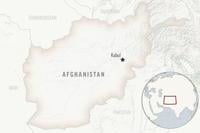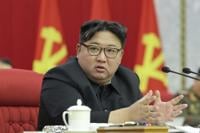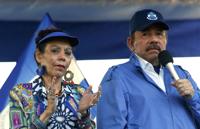MANILA, Philippines (AP) — The acting Philippine defense chief has resigned, officials said Monday, in the latest in a series of top-level changes in the country’s security establishment that has sparked speculation of renewed military unrest.
President Ferdinand Marcos Jr. accepted “with deep regret” the resignation of defense officer-in-charge Jose Faustino Jr. and offered the top defense post to Carlito Galvez Jr., another retired general who has been involved in peace talks with insurgent groups, presidential spokesperson Cheloy Garafil said.
Galvez has accepted the offer, Garafil said without providing other details, including why Faustino, a former military chief of staff, decided to resign.
Marcos on Saturday cut short the term of military chief of staff Lt. Gen. Bartolome Bacarro, whom he had appointed five months ago, and replaced him with a retiring general without explaining the surprise move.
Faustino is a supporter of Bacarro and the two were classmates at the Philippine Military Academy. Bacarro received the highest military award for combat bravery as a young army officer and his three-year term was supposed to continue until August 2025.
The appointment of military chiefs is a sensitive issue. The military has a history of restiveness, failed coup attempts and corruption scandals, and has faced accusations of human rights violations. Efforts have been made for years to instill professionalism in the military and insulate it from the country’s traditionally chaotic and corruption-tainted politics.
Lt. Gen. Andres Centino, a military chief of staff whom Bacarro replaced in August last year, was reinstated by Marcos to the top post of the 144,000-strong armed forces. Centino, who was due to retire next month, was chosen over a dozen senior generals and will have a fresh three-year term.
A new law that took effect last year fixed the term of the military chief of staff to three years to allow the top general more time to initiate reforms and press a years-long campaign to modernize the underfunded military, which faces Muslim and communist insurgencies and increasingly aggressive actions by China in the disputed South China Sea, where the Philippines claims contested islands, islets and reefs along with other nations.
Bacarro’s sudden removal sparked speculation of renewed military restiveness after the national police went on alert over the weekend. But national police spokesperson Col. Jean Fajardo denied the move was linked to any military restiveness and said personnel were placed on “heightened alert” mainly to secure an annual religious gathering in Manila.
In a turnover ceremony at the main military camp in the capital on Saturday, Bacarro handed a saber symbolizing the military's leadership to Centino. Neither Marcos nor Faustino attended the ceremony.
Bacarro’s removal followed a decision by the national police chief, Gen. Rodolfo Azurin Jr., to tender his resignation on Thursday after Marcos’s interior secretary appealed to nearly 1,000 police generals and colonels to quit to allow a committee to investigate top officials involved in illegal drugs.
Azurin asked top police officials to support Interior Secretary Benhur Abalos’s drastic move. But he said some generals opposed the call for them to resign within the month because they were not facing any criminal lawsuits and had not been linked to the drug trade.








































